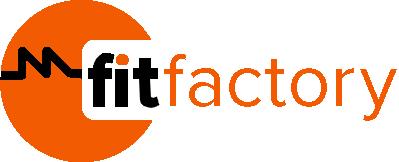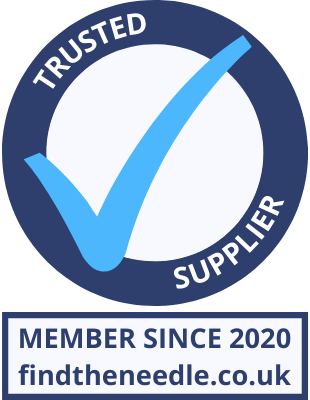 Add My Company
Add My Company
Sign In
Do you need production control software?
30-11-2020

Managing your manufacturing operations is the core of your business. And it’s important that you produce high quality parts and deliver goods on time to customers. When you’re starting out, you probably use a combination of paper and spreadsheets to do quotes, create job cards, track inventory and generate pretty much all of your paperwork. However, as your business grows, this becomes much too onerous to manage yourself. This is where production control software comes in. Let’s take a look at exactly what it is, and if you need it.
What is production control software?
Production control software is typically used for companies who work in Make-to-Order production. So, this tends to be precision machining, CNC machining, milling, turning, fabrications – any sort of low volume, high complexity jobs.
It’s used to manage manufacturing operations from quotation to invoice. It automates the generation of paperwork for RFQs, quotes, job cards, deliveries, CofCs and invoices. Also, a production control system maintains customer information and job details throughout the job cycle. This is highly efficient because it saves time. If you enter information from a quote you produce, the details can be easily used when you win the work. In the long run, this saves time on duplicating everything. This process continues throughout every stage of production.
Production control software incorporates BOM management and helps with ordering from suppliers as well as managing information from customers. It has inventory management to keep track of any stock you might have in the business and tracking items at goods-in and goods-out.
Ultimately, it’s to gain better control of your production – as it says in the name.
Because they perhaps offer the greatest level of granular control over your production, production control systems come in many different shapes and sizes depending on your niche, so choosing the right one for your business is important. At first, it might seem unnecessary to adopt a software package to replace your current processes. Eventually, though, you may realise you need something more. You may have become accustomed to your current solutions, maybe you think you can work through the issues that these methods raise. After all, nobody likes change, and why fix what isn’t broken?
However, it might be of greater benefit to you to invest in production control software sooner rather than later.
Do you need production control software?
Here are some key indicators that your business would benefit significantly from a production control system:
1. You currently use various different software packages for different business processes
Is your order book a number of decentralised Access databases, with no integration to your accounting system? You might produce quotes within Word or Excel. Or you may even be raising handwritten purchase orders using triplicate books.
If your current methods lack integration, it prevents you from having transparency between departments. Your company departments need to share data seamlessly, but using multiple systems often entails individuals owning certain data. This may prevent some employees being able to access a document they need, creating many problems. It also doubles up work, requiring the same information to be entered into multiple systems rather than one software package. This results in slower processes and inefficiencies throughout the business.
In addition, it’s important to continually send professional documentation. If you don’t have a system in place, you likely have quotes, purchase orders and delivery notes in different formats. However, having a production control system allows you to have all these in one place, in the same format. Having a consistent letterhead and professional documents will not only emphasise your expertise, but this may also attract new customers.
With a single solution, information can be easily located by anyone with the required permissions. In addition, it means that data only needs to be entered once, saving time for your staff and increasing efficiency.
Using our Fitfactory solution has improved levels of efficiency throughout Pope & Meads Ltd, therefore increasing work productivity.
POPE & MEADS
2. Lack of organisation and missed deadlines
Informing production staff which job they need to work on tends to require you to go to the shop floor and speak to each individual. A couple of hours have passed as multiple staff have stopped you to discuss the job they’re working on. Asking if they can have another drawing printed as they have misplaced theirs. Unfortunately, this means it’s all too easy to miss deadlines, and any urgent customer changes can be difficult to accommodate.
Scheduling your production processes, and ensuring you have the correct resources and materials available to complete jobs is crucial. You could create plans on spreadsheets, but as soon as something changes in the schedule, those plans go out the window. Without effective planning and visibility, you’re likely to experience delays in production. This results in jobs not completed on time and ultimately customers experiencing disappointment. This can cause customers to not choose your business for future orders.
A production control system improves communication throughout your business. It allows you to schedule and prioritise tasks, and provides visibility of your inventory and current purchase orders. Ensuring that you have the adequate amounts of resources to complete jobs on-time and in-full, and maintain happy customers.
View of current Orderbook from Production Control System
3. You waste a lot of resources
Whether it’s duplicating work or not scheduling in maintenance checks for your machines, resources can easily be wasted.
A production control system can plan machine downtime around your jobs, so that it has minimal effect on production times. Machine down-time is required when a machine undergoes its regular maintenance check. If this isn’t scheduled, faults could arise with the machine. Consequently, a job mightn’t complete on time, future jobs might experience delays, or unexpected costs might incur to fix the machine or even purchase a new one.
A production control system can also help minimise scrap and rework. Scrap and rework can be frustrating – the loss of time and money. This can be caused by many things: when the wrong parts are ordered, when changes aren’t effectively communicated or when designs aren’t properly executed on the manufacturing line. So, you might be wondering how can a production control system prevent this issue from occurring? Let’s have a look:
The system would help you to keep track of previous or recurring problems with a particular part or job. This means you aren’t reliant upon people remembering that a given job posed a particular problem or was prone to high scrap levels at a particular stage. This information is recorded against the job or the part, the first-time round, and can be viewed easily on the system if the jobs repeated.
Essentially, it’s about keeping records in a central location rather than in the memories of the people who did the job the last time. If you had problems with doing a job on a previous occasion, then you can record those problems to flag up to do it slightly different the next time around to avoid those pitfalls. A problem you might experience with not having a central location and relying on staff to remember, is that they may be on holiday, so you would be unaware of the issue. Therefore, you would have no way of knowing about the problem. That’s why a production control system can help eliminate these issues.
4. You’re unable to access your business information & your customer’s experience is mediocre
When you need to find information quickly, whether it’s for a compliance audit or a customer enquiry, you don’t want to go through paperwork or frantically search for a folder you saved on your computer, with no recollection of where you saved it!
Not only that, physical documents can become lost or handwriting may be difficult to understand. This can result in an individual misinterpreting the information.
If a customer calls and requires information about their job or an invoice for example, you would ideally want to provide them with the information instantly. With a production control system, you are able to do just that. You can locate specific data at any time, easily and quickly. Providing information to customers promptly, as well as supplying them with the correct and accurate details about the job, is likely to keep them satisfied.
5. You have no idea how much you make on each job
When speaking to one of Fitfactory’s customers, Weymouth Precision Engineers, we learnt that before they used our production control system, they didn’t know important figures. They mentioned “We didn’t know how much we were making on a job, or whether it was making the time allocated to it.”
The same can also be true when ordering from a supplier. If you don’t have a clear record of what you ordered from them to hand, then they could quote any price, and think it’s the same as before. If ordering from a supplier, a production control system will enable you to view how much it cost you and the delivery time it took, this information will be stored in the system. So, if you get an RFQ for a similar job in the future, you will easily know how much it will cost to complete the job, based on the previous quotation. As a result, this helps you produce quotes quicker.
Also, because the production control system tracks which operatives are working on which jobs, which machines and for how long, you can accurately calculate how much that job cost you to produce. So, you can provide more accurate quotes and ensure you’re making profit on any job you do – and you can reject any jobs that aren’t going to make you profit!
6. You want to grow your business
Using manual methods to manage your production reduces the chance of growth. With a growing customer base, it will soon become challenging to keep up with manual data input, as well as handling the increase in production.
Production control software can help you keep track of orders, costs and income, and ensure this information is always up-to-date and accurate. This affords you the ability and opportunity to grow and expand your business, whilst continuing to maintain effective processes and customer satisfaction. Furthermore, the availability of accurate job costings will allow you to identify which jobs are profitable and which are restricting your ability to grow.
Let’s discuss Weymouth Precision Engineers again. They impressively grew their orderbook from £500 to £5million in only 7 years by implementing a production control system. This is an example of a SME growing drastically as a result of utilising production control software.
What production control software is not
A production control system is not a magical silver bullet that solves all of your problems.
It’s important to know production control software is not an MRP system. MRP systems typically include elements of planning and the ability to make-to-stock and order-from-stock. They provide a greater level of detail on the materials required for jobs and will help you manage your overall inventory levels to ensure you have stock on site to quickly dispatch repeat orders with short notice.
Production control software is ideal for SMEs that operate in Make-to-Order production. For example: precision machining, CNC machining, milling, turning, fabrications – any sort of low volume, high complexity jobs. However, there are many systems available that are tailored to specific niches. For example, we offer the UK’s leading production control system for treatments.
Also, to be honest, a production control system isn’t quick to implement. It will require dedication to get the system up and running. Furthermore, if you have systems already, you may need to transfer data across and invest time to learn the system. Implementing a production control system isn’t a quick process, it takes time.
Additionally, a production control system will not as standard provide visual planning and scheduling functions. So, it’s really important to consider what you need from a system before selecting a production control system, an MRP system or a more comprehensive ERP system.
We’ve covered the differences between the systems in this blog.
Overall, how can a production control system help my business?
After considering the scenarios and challenges described above, which your business might face, you may be wondering how production control software can actually help your business? In simple terms, it can help you:
Streamline processes
Improve delivery performance
Reduce paperwork
Simplify compliance
Increase customer satisfaction
Increase profitability
Beyond that though, it also captures data across your whole business processes. Giving you easy access to the information you need to make smarter decisions. Which is important the industry progresses towards Industry 4.0.
Next steps
Fitfactory’s production control system is designed specifically for manufacturing companies and it’s both quick to implement and simple to use. The system streamlines job processing from quotation to invoice. Allowing you to minimise waste, maximise efficiency, and improve productivity, whilst also helping you to comply with accreditations like ISO, AS, and IATF.
We also strive to support you through your business’s growth. Maybe you only need a production control system today, but 6 months down the line, you may need a Scheduler or Shop Floor Data Capture, or business analytics. Realistically, adoption of any software system will require some cost of change, and you don’t really want to have to change your system again after only 2 or 3 years. We provide a modular system to help you get started with what you need and support you as you grow. That’s why many of our customers stay with us for over 10 years.
For more information on Do you need production control software? talk to Fitfactory Technology Ltd
Enquire Now
List your company on FindTheNeedle.

